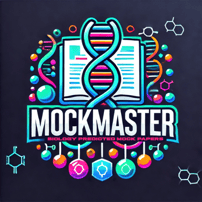Exam success is a click away - grab our biology mock papers now!
hurry up 50% off
Ace Your Biology A-Levels This Year: Your Ultimate Guide to Success!
Preparing for your Biology A-Levels? This essential guide goes beyond the textbook, offering practical strategies and insider tips to help you understand complex biological principles and excel in your exams. Ready to transform your approach to learning? Dive in!
4/28/20253 min read


2. Effective Note-Taking and Organization:
Well-organized notes are invaluable for revision.
Concise Summaries: Condense lengthy notes into key points and concepts. Use bullet points, headings, and subheadings for clarity.
Color-Coding: Use different colors to highlight key terms, processes, or structures. This visual organization can help you quickly locate information.
Regular Review: Don't let your notes gather dust! Schedule regular review sessions to reinforce what you've learned. Even short, frequent reviews are more effective than infrequent cramming sessions.
3. Practice Makes Perfect (and Predicts Performance!):


The rustle of textbooks, the intricate diagrams, the fascinating world of cells and ecosystems – diving into AS & A-Level Biology is an exciting journey. But as exam season approaches, it's natural to feel a little pressure. Fear not, aspiring biologists! This blog post is your roadmap to not just passing, but acing your Biology exams this year.
We'll cover essential study strategies, highlight the crucial role of practice, and even point you towards a fantastic resource to help you gauge your readiness. So, let's get started and transform those exam jitters into confident strides towards success!
1. Master the Core Concepts:
Biology builds upon fundamental principles. Don't just memorize facts; strive to understand the underlying mechanisms.
Active Recall: Instead of passively rereading notes, test yourself frequently. Try to recall information from memory without looking, then check your notes to reinforce your understanding. Flashcards, self-quizzing, and mind maps are your best friends here.
Deep Understanding: Don't just learn what happens, but also why and how. Connect different topics and see the bigger picture. For example, understanding enzyme action is crucial for grasping metabolic pathways and digestion.
Visual Learning: Biology is full of diagrams and processes. Utilize visual aids like flowcharts, diagrams, and animations to solidify your understanding. Draw and label diagrams yourself – this active engagement significantly aids retention.
This is where the rubber meets the road. Consistent practice is paramount for exam success.
Past Papers are Gold: Work through as many past papers as possible. This will familiarize you with the exam format, question types, and time constraints. Pay attention to the mark schemes to understand what examiners are looking for.
Understand Command Words: Be aware of the different command words used in exam questions (e.g., "describe," "explain," "evaluate," "compare"). Each requires a specific type of answer.
Time Management: Practice answering questions under timed conditions to develop your speed and efficiency.
4. The Underrated Power of Mock Exams:
Speaking of practice, mock exams are an incredibly valuable tool in your arsenal. They go beyond simply testing your knowledge; they offer a realistic simulation of the actual exam environment.
Identify Weak Areas: Mock exams highlight topics where you need further revision. By pinpointing these areas early, you can focus your efforts effectively.
Familiarize Yourself with Exam Conditions: The pressure of a timed exam can be daunting. Mock exams allow you to experience this pressure in a low-stakes environment, helping you build confidence and manage your time effectively on the real day.
Improve Exam Technique: You'll learn how to structure your answers, allocate your time wisely across different questions, and avoid common pitfalls.
Boost Confidence: Performing well in a mock exam can significantly boost your confidence and reduce exam anxiety.
Ready to experience the benefits of a realistic exam simulation? Head over to https://shop.mockmaster.co.uk/ to explore our affordable and comprehensive A-Level Biology mock exams, available at a click!
5. Seek Help and Collaborate:
Don't be afraid to ask for help when you're struggling.
Talk to Your Teachers: Your teachers are your best resource. They can clarify concepts, provide additional explanations, and offer personalized advice.
Study Groups: Collaborating with classmates can be beneficial. Discussing topics, explaining concepts to each other, and working through problems together can deepen your understanding.
Online Resources: Utilize reputable online resources, educational websites, and videos to supplement your learning.
6. Take Care of Yourself:
Your physical and mental well-being are crucial for effective studying.
Get Enough Sleep: Aim for 7-9 hours of quality sleep each night. Adequate rest improves concentration and memory retention.
Eat Healthy: Nourish your body with a balanced diet.
Stay Hydrated: Drink plenty of water throughout the day.
Take Breaks: Regular short breaks during study sessions can improve focus and prevent burnout.
Exercise: Physical activity can reduce stress and improve cognitive function.
Final Thoughts:
Acing your AS & A-Level Biology exams requires dedication, consistent effort, and the right strategies. By mastering the core concepts, practicing effectively, and utilizing valuable tools like our mock exams. You'll be well-equipped to tackle your exams with confidence and achieve the results you deserve. Remember, every step you take now brings you closer to your academic goals. Good luck – you've got this! And don't forget to check out our affordable mock exams to give yourself that extra edge!
Mock papers for AS & A-level biology success.
Links:
© 2025. All rights reserved.


Social links:
